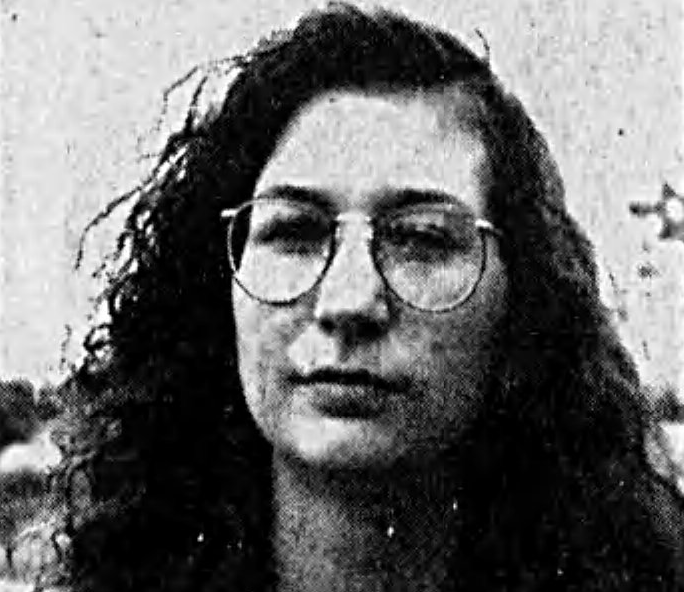It’s been 30 years since Tiffany McKinney’s brutal murder on Sept. 24,1994, and one woman who grew up with the convicted murderers and who sees the world very differently because of that wants the 19-year-old victim to be remembered.
It all started when McKinney moved to Quesnel for work. A year later she was bludgeoned to death in a nightmare of a story of plotting and planning the cold-blooded killing of an innocent woman with hopes and dreams of becoming an artist.
McKinney moved from her childhood Prince George home and a week later she was dead, her mother, Pat Keckalo, said in an article in The Prince George Citizen dated March 18,1995.
The details of the murder were laid out during the trial, chronicled by The Prince George Citizen and the Quesnel Observer in September 1996.
The jury heard how her killers knew McKinney, wanted her car, so they prepared her grave before hitting her in the head 12 times to put an end to her life at that wooded grave site in September 1994.
By spring of 1995, she was still considered missing, with The Citizen updating the case in a front-page story on March 18. Soon after, the men were charged and told police where her body was.
Lana Jamieson grew up in Quesnel where the killers, Robert Edward Copeland and Paul Charles Forknall, lived, too, and it changed her perspective on the whole world.
Jamieson was 16 at the time of the murder and said she knew McKinney but only during the last year of her life.
“Things that stand out to me now as an adult are I think about how brave she was; moving to another town (Quesnel) to start fresh and was really just beginning to figure out who she was,” Jamieson said in a recent email to The Citizen. “She seemed like such a free spirit - when I first met her she had a little blue VW bug and a huge sheepdog named Cheemo. She talked about wanting to go to Art School at Emily Carr in Vancouver - but she was just waiting to have access to an ICBC settlement (from a childhood accident) so she could have the funds to go. The last time I saw her was on my birthday in July. By that point she had a different group of friends - older ones. In the winter when we saw the missing posters up around town, I think we all just thought she had run away or was travelling.”
Jamieson said that in her young mind she could not imagine what had actually happened to McKinney.
“I remember a group of us were at a store downtown and the owner, who was really kind and friendly to us, was talking with us about it,” Jamieson said. “At that time the police had taken possession of her car in Kelowna. It was the first time I had heard someone imply that they thought she had been killed. I think in my youth I just hadn’t even considered that as a possibility."
Quesnel was a small town, she added.
“We all grew up with the boys who did this,” Jamieson said.
“Tiffany’s murder really affected me and made me question my perception of people - made me less likely to trust them. It was really a terrible time for all of us who knew her. We were all so young - over the years I’ve been able to process what happened with a more mature lens. At the time I couldn’t even bring myself to read about the trial in the newspaper but I can’t remember if that was because I was instructed not to.”
At the time, police zeroed in on the suspects and used an undercover operation to get information from them that led to their arrests.
“Last year I finally read through all of the reports from the Observer and the PG Citizen,” Jamieson said.
“Something that really stood out to me were some of the chilling quotes from the recordings from the Mr. Big operation. An undercover RCMP asked Paul if (killing her) had been hard for him (when he was sizing him up to become a hitman for their make-believe crime organization) and Paul responded something like, ‘I wasn’t even shaking or anything. It felt natural.’”
It left her with chills. “I hope I never see them again but I also hope people realize how cold and calculating they were,” she said. “It wasn’t a mistake, or an accident. They planned this, did it and then tried to cover it up.”
Copeland and Forknall were convicted of murder in the first degree in 2000 and sentenced to life in prison.
In Canada, this means they would not be eligible for parole for 25 years.The conviction came after a second trial. After their first conviction, they appealed and won a new trial in 1999 when it was determined that the first trial judge had made errors in his instructions to the jury.



